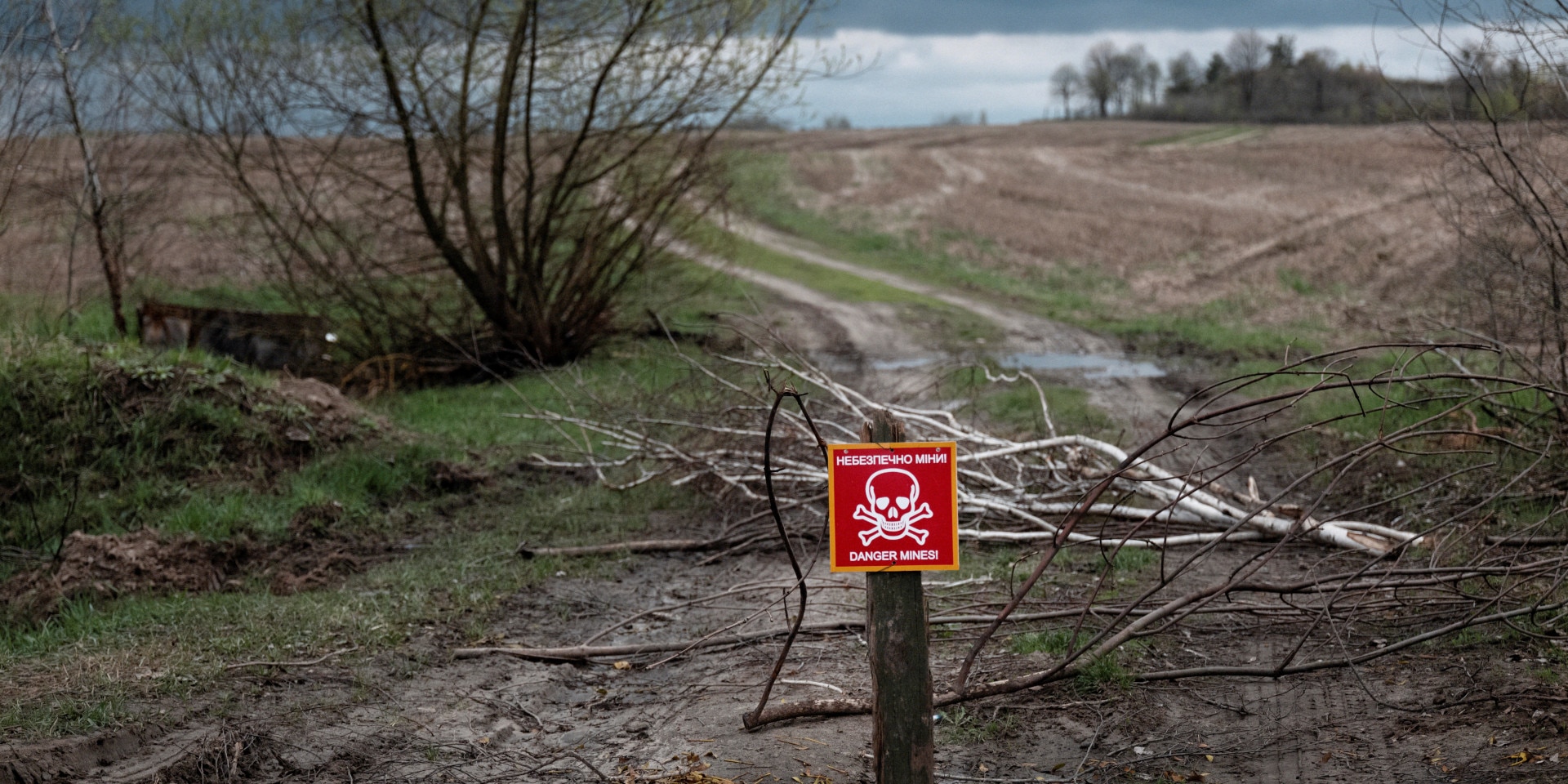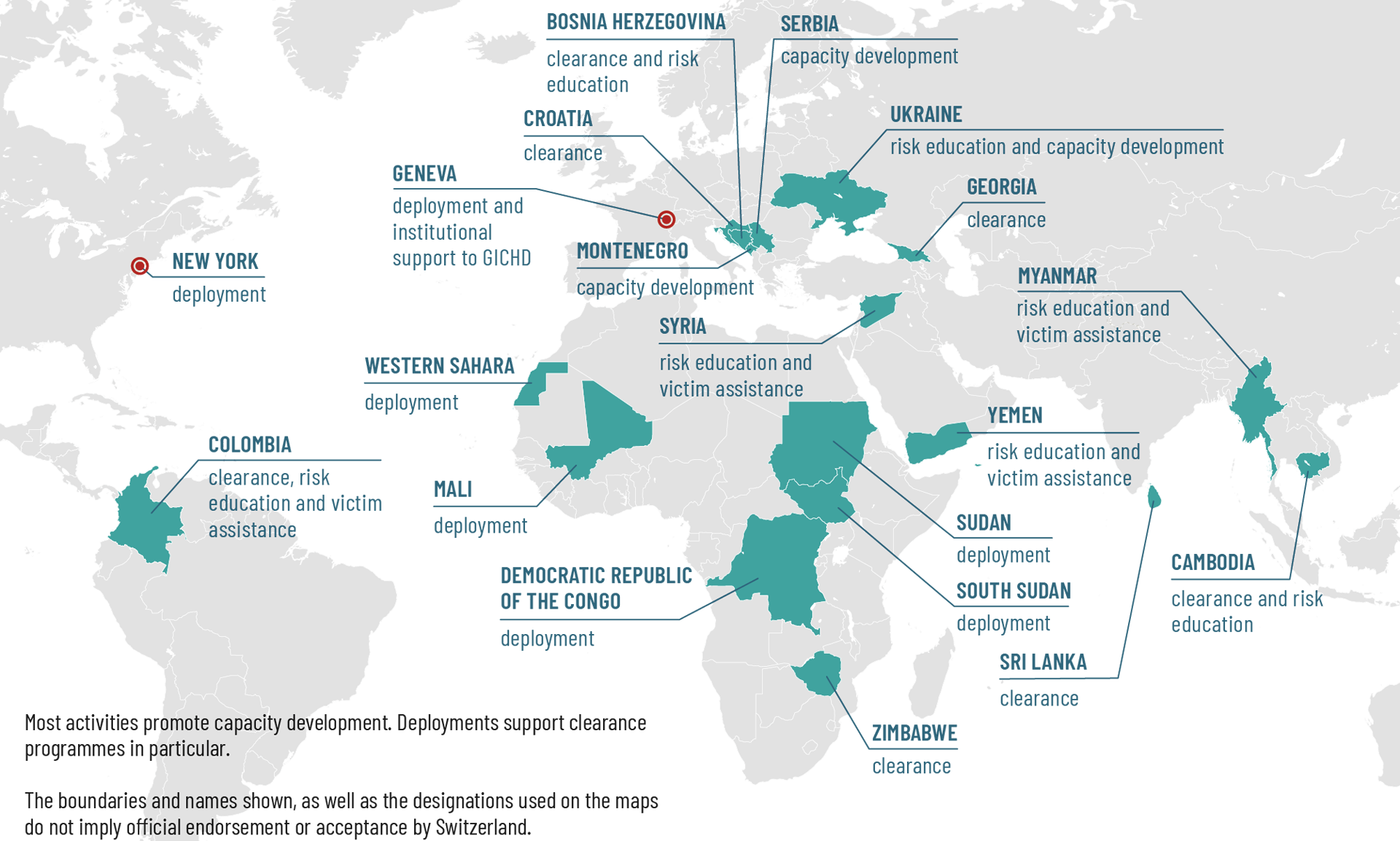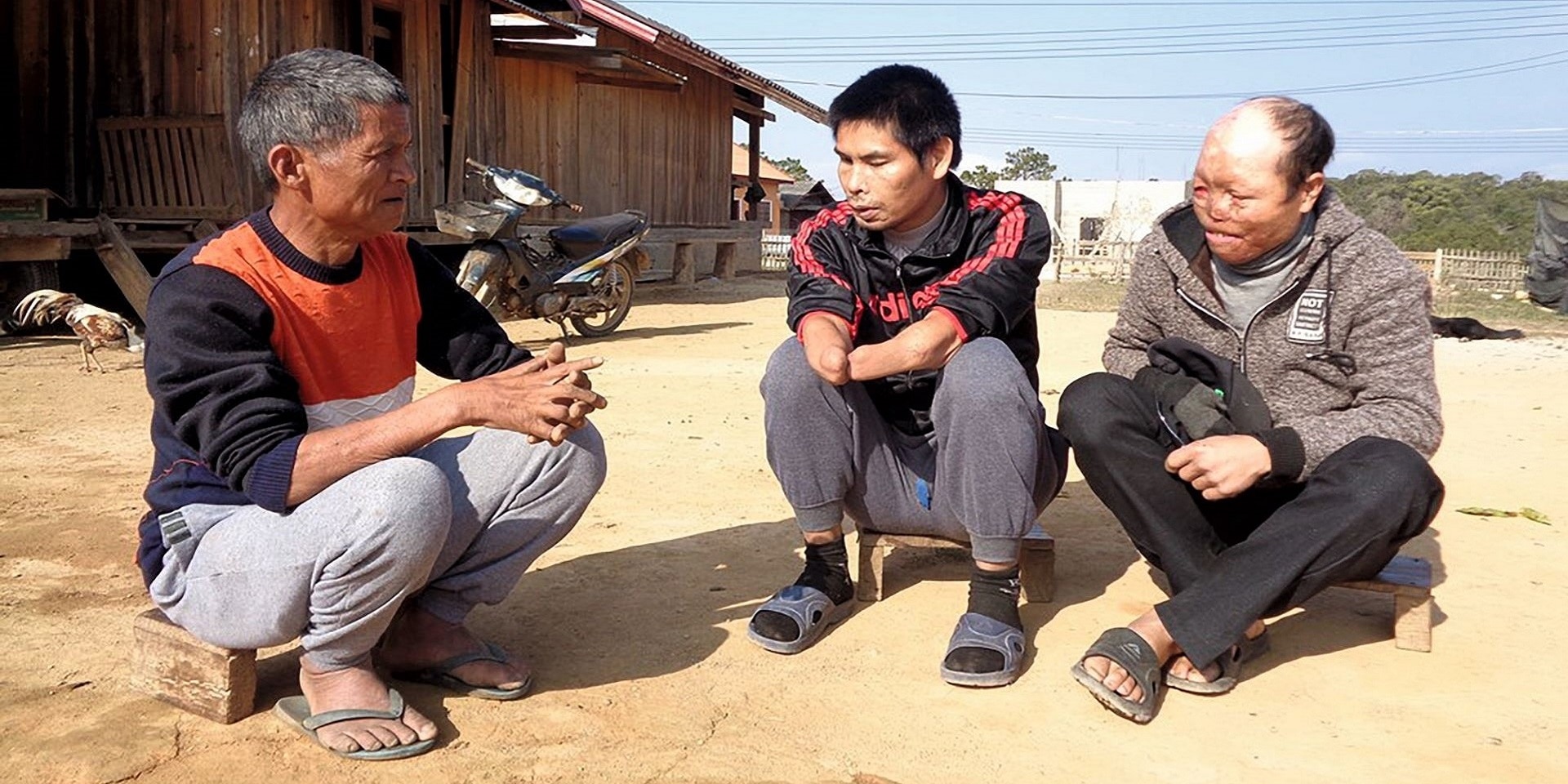«60 million people live with the threat of explosive ordnance in their daily lives»
The Geneva International Centre for Humanitarian Demining (GICHD) was set up in 1998 on the initiative of Switzerland, which has supported it financially ever since. Active in some forty countries, it transfers its expertise to mine-affected countries to help them in the fight against landmines. In Ukraine, the GICHD is helping to identify and plan humanitarian demining operations, explains its director, Stefano Toscano. Interview.
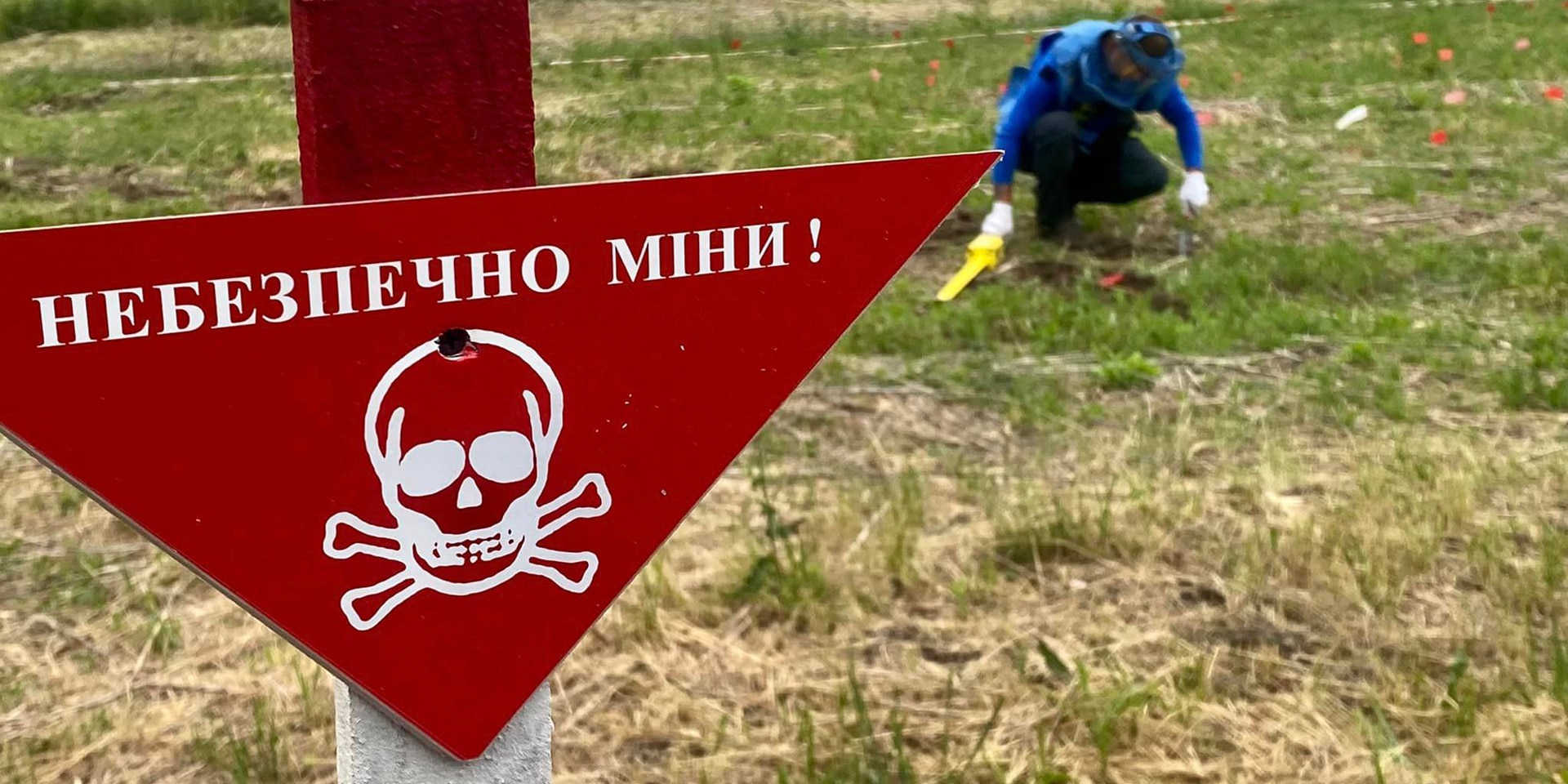
The Geneva International Centre for Humanitarian Demining (GICHD) has been working in Ukraine since 2012 in close collaboration with its national partners. © GICHD
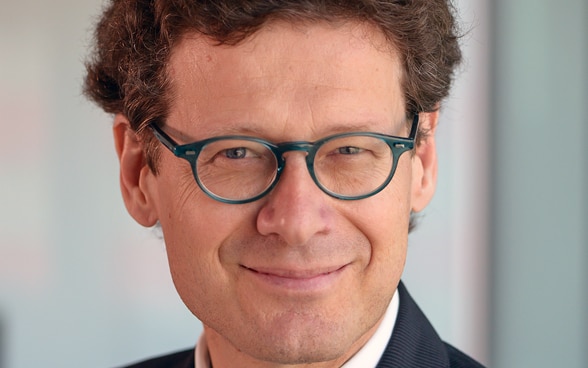
What is the role of the GICHD?
The Geneva International Centre for Humanitarian Demining (GICHD) works to reduce risks to communities stemming from all types of explosive ordnance: landmines, cluster munitions, explosive remnants of war, and unsafely and insecurely managed conventional ammunition. Though conflicts that leave explosive ordnance may only last a few years, or even a few days, the process to locate, identify, record, and clear land of these devices often takes decades and requires major investment. Thousands of lives are lost or irreparably damaged, survivors and their families struggle with the physical, psychological, social, and economic consequences of explosive ordnance accidents. An estimated 60 million people in over 60 countries and territories live with the threat of explosive ordnance in their daily lives.
Every year, the GICHD works in about 40 countries. Our support is upstream, helping national authorities take charge of their own programmes and focusing on the development of appropriate strategies, standards, and management frameworks, including information management. The Centre also fosters the development and implementation of global norms and standards by providing expert support to relevant international instruments and processes.
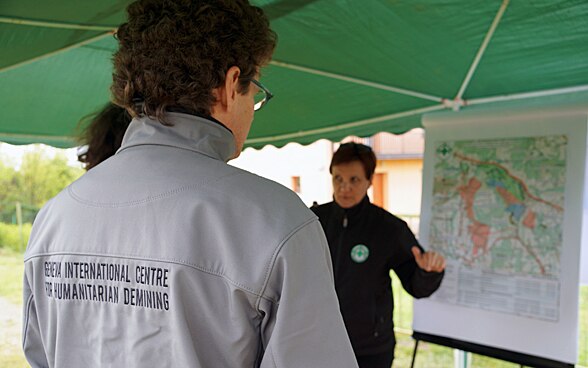
On the ground, this work can take different forms. In Ukraine, for example, we have worked closely with national partners to increase mine action capacity since 2012. With the escalation of hostilities last year, a keystone of the GICHD’s work is to support the national authorities to identify and record the contamination stemming from explosive ordnance to enable evidence-based decisions on planning and prioritization of humanitarian demining operations even while conflict is ongoing. In Zimbabwe, we brought together diverse stakeholders to develop a comprehensive strategy towards achieving the country’s goal of being mine-free by 2025. In Peru, the Centre is helping strengthen national capacity to ensure safe and secure ammunition management in line with the International Ammunition Management Guidelines.
At the international level, here in Geneva, the GICHD provides expert input and advice to several stakeholders to support effective implementation of treaties and conventions that ban or regulate the use of anti-personnel landmines, cluster munitions and other explosive devices, including those of an improvised nature, and that provide the framework to clear, remove or destroy explosive remnants of war. By bringing its expertise and field experience to the international level, the Centre contributes to evidence-based discussions and decisions.
What are the particular strengths of International Geneva?
Considered the "capital of peace and humanitarian action", International Geneva is tackling new global challenges on a daily basis. As part of this, the GICHD acts a bridge, connecting national contexts to regional exchanges and international multilateral processes. This enhances mine action at all levels: ensuring national experiences and challenges feed into the development and implementation of international normative frameworks; supporting the codification of knowledge and good practice into standards that guide the operational implementation of these instruments; bringing research, innovation and good practice from the international level to national contexts so that national actors have capacity to carry out their work safely, efficiently and effectively; and fostering dialogue and exchange at regional level to build cooperation and exchange of good practices.
An example of this work, bridging International Geneva and national contexts, is ensuring that gender, diversity and inclusion are integrated and promoted across mine action and ammunition management. These considerations are particularly important in explosive ordnance risk reduction, both to improve operational effectiveness and because of their transformative impact on communities. One way that the GICHD does this is by conducting research and promoting good practices.

How does the GICHD support Switzerland’s commitment?
25 years ago, Switzerland demonstrated its commitment to and leadership in humanitarian action and international law when it signed the Anti-Personnel Mine Ban Convention, announcing its intention to create a centre to support the implementation of this new treaty. The GICHD was founded on Switzerland's initiative as a centre of technical expertise and training in humanitarian demining to contribute to the development and professionalisation of the sector.
A quarter of a century later, the GICHD and Switzerland still share many strategic priorities, including on humanitarian affairs, disarmament and arms control, as well as sustainable development and peace. Concretely, the GICHD’s work under these shared priorities helps strengthen the protection of civilians, promotes development and peace, and bolsters International Geneva as a global centre for governance of disarmament and arms control generally, as well as mine action and ammunition management specifically.
In the GICHD’s approach, EO-affected states are at the heart of the solution, mirroring Switzerland’s focus on supporting national capacities to address national challenges. Continuous capacity development will ultimately enable national authorities to meet the challenges themselves. In the past year, this has clearly been seen through Swiss-funded training courses, led by the GICHD, adapted to current local needs, and delivered in Ukraine in the Ukrainian language. This support for long-term capacity development of national and international partners remains a pillar of the GICHD’s work, promoting national ownership and localisation of responses.
Links
- Press release, 22.06.2023 – Ukraine Recovery Conference 2023: Federal Councillor Ignazio Cassis calls for continued support for Ukraine recovery based on Lugano Principles
- Press release 22.06.2023 – Humanitarian demining: DDPS presents Ukraine with remote-controlled demining machine
- Adress by federal counsillor Ignazio Cassis – URC2023
- Geneva International Centre for Humanitarian Demining (GICHD)
- War against Ukraine – measures taken by the Confederation since 24 February 2022
- Tradition and principles of humanitarian mine action in Switzerland, web article

